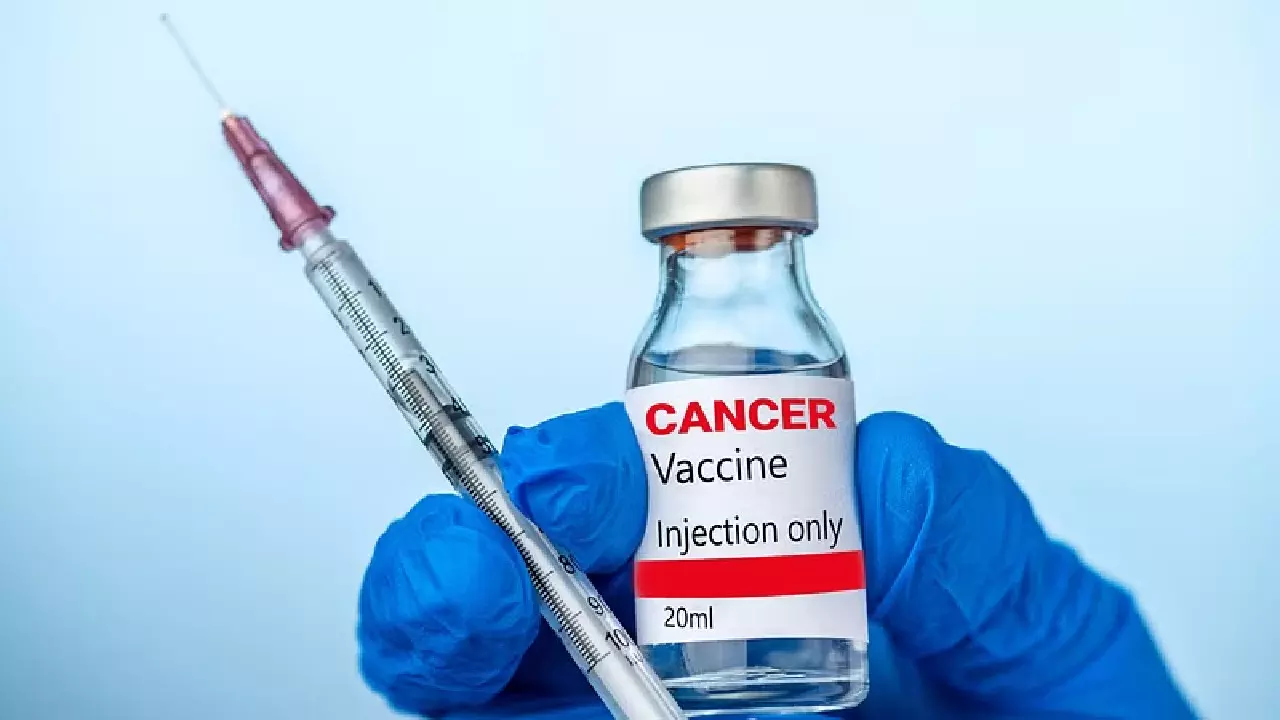Russia Develops Groundbreaking mRNA Cancer Vaccine, Targeting Free Distribution by 2025
Russia announces a revolutionary mRNA cancer vaccine, leveraging AI for personalized treatments, aimed to be available for free by 2025. A major milestone in cancer care innovation.
Russia Develops Groundbreaking mRNA Cancer Vaccine, Targeting Free Distribution by 2025

In a revolutionary step toward transforming cancer treatment, Russia has announced the development of an mRNA-based cancer vaccine. Designed to suppress tumor growth and prevent metastasis, this innovative treatment is poised to be made freely available to patients by 2025. The announcement, made by Andrey Kaprin, General Director of the Radiology Medical Research Center under the Russian Ministry of Health, reflects a significant stride in global healthcare.
A Unified Effort in Medical Innovation
The development of the vaccine stems from a robust collaboration among Russia’s top research centers, including the Gamaleya National Research Center for Epidemiology and Microbiology. Speaking to TASS, Russia’s state news agency, Alexander Gintsburg, Director of the Gamaleya Center, highlighted the vaccine’s success in pre-clinical trials, where it demonstrated the ability to suppress tumor growth and prevent cancerous cells from spreading to other parts of the body.
This breakthrough signifies not only scientific progress but also a coordinated national effort to tackle one of humanity’s most persistent health challenges.
How the mRNA Vaccine Works
mRNA technology has already proven transformative in the fight against infectious diseases, particularly with COVID-19 vaccines. Now, the same technology is being repurposed to combat cancer.
The mRNA vaccine introduces a messenger RNA sequence into the body, instructing cells to produce a specific protein. This protein, when recognized by the immune system, triggers the production of antibodies. In the context of cancer treatment, the vaccine is tailored to train the immune system to identify and destroy cancerous cells, offering a precise and personalized approach to treatment.
This method represents a shift from traditional cancer therapies, which often involve invasive surgery, chemotherapy, or radiation. The mRNA vaccine has the potential to offer a non-invasive, highly targeted, and more effective solution.
The Role of Artificial Intelligence in Accelerating Development
A key enabler of this breakthrough is Artificial Intelligence (AI). Alexander Gintsburg emphasized the pivotal role AI played in streamlining the vaccine development process. Using advanced neural network computations, researchers can analyze vast datasets and identify potential vaccine compositions much faster than traditional methods.
Remarkably, AI has made it possible to create personalized cancer vaccines in as little as one hour, drastically reducing the time needed for research and development. This capability not only accelerates the production of effective treatments but also makes personalized medicine more accessible to patients.
National Vision for Next-Generation Therapies
Earlier this year, Russian President Vladimir Putin expressed confidence in the nation’s progress in cancer research, stating that Russia is on the brink of creating revolutionary cancer vaccines and next-generation immunomodulatory drugs. This sentiment aligns with the global push toward leveraging biotechnology to address complex medical challenges.
Russia’s move to make the vaccine freely available by 2025 underscores its commitment to accessible healthcare. If successful, this initiative could set a new benchmark in cancer care and serve as a model for other nations to follow.
Implications for the Global Healthcare Industry
The announcement of Russia’s mRNA cancer vaccine has profound implications for the global healthcare landscape. By integrating cutting-edge mRNA technology with AI-driven innovation, Russia is positioning itself as a leader in personalized medicine.
This development comes at a time when global cancer rates continue to rise, with over 19 million new cases reported annually, according to the World Health Organization. The ability to provide targeted, effective, and non-invasive treatments could significantly alleviate the burden on healthcare systems worldwide.
Moreover, the vaccine’s free distribution model sets a precedent for equitable access to life-saving treatments. It aligns with the broader global agenda of reducing healthcare disparities and ensuring that advancements in medical science benefit all populations, regardless of economic status.
Challenges and Future Outlook
While the promise of the mRNA cancer vaccine is immense, several challenges remain. Clinical trials must confirm its safety and efficacy in humans, regulatory approvals must be secured, and large-scale production capabilities need to be established.
Additionally, Russia’s plan to distribute the vaccine for free poses logistical and financial challenges that will require robust government support and international collaboration.
Nevertheless, the vaccine’s potential to revolutionize cancer treatment cannot be overstated. If successful, it could pave the way for similar advancements in treating other complex diseases, including autoimmune disorders and rare genetic conditions.
A Turning Point in Cancer Treatment
Russia’s mRNA cancer vaccine represents a monumental leap forward in the fight against one of the world’s deadliest diseases. By leveraging AI and pioneering mRNA technology, the country is not only advancing medical science but also redefining what’s possible in healthcare accessibility.
As the global medical community watches closely, this breakthrough has the potential to inspire further innovation and collaboration, ultimately bringing us closer to a world where cancer is no longer a terminal diagnosis but a treatable condition.
This version dives deeper into the technical, logistical, and societal implications of the vaccine, making it suitable for a business audience interested in healthcare innovation and its market impact. Let me know if you'd like further adjustments!

